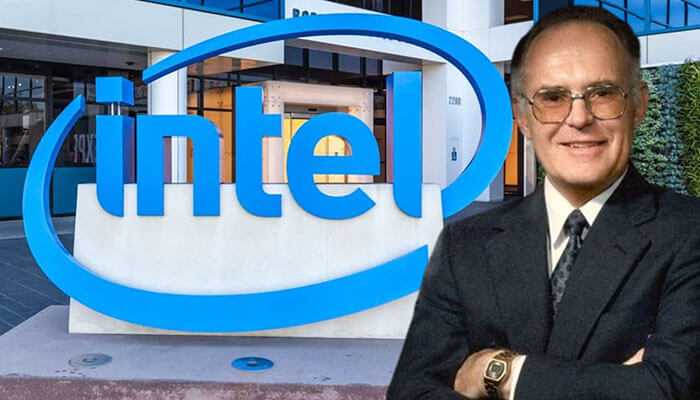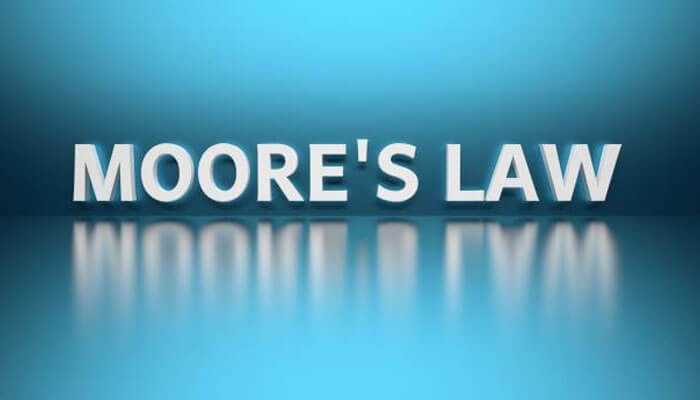American businessman and engineer Gordon Moore (born January 3, 1929 – March 24, 2023) was an emeritus chairman and co-founder of Intel Corporation. He put forth Moore’s law, which states that an integrated circuit’s (IC) transistor count doubles roughly every two years.
In 1940, Moore was encouraged to pursue a career in chemistry after receiving a scientific kit as a Christmas gift. Moore was an athlete at Sequoia High School, where he attended from 1942 until 1946. From 1946 to 1947, Moore attended San José State University—then known as San José State College—to study chemistry. In 1948, he moved to the University of California, Berkeley, where he studied under William Giauque, Glenn Seaborg, and Melvin Calvin. In 1950, he received his Bachelor of Science in Chemistry.
Her enrolled at the famous California Institute of Technology in September 1950, and in 1954 he was awarded a Ph.D. in chemistry.
From 1953 to 1956, Moore worked as a postdoctoral researcher at Johns Hopkins University’s Applied Physics Laboratory.
The Moore Law
Moore was employed by Fairchild Semiconductor in 1965 as the director of development and research. Electronics Magazine requested him to forecast the future course of the semiconductor components market for the next ten years. Moore noted that the number of components (capacitors, diodes, resistors, and transistors) in a compact integrated circuit had increased roughly annually and predicted that this trend would continue for the next 10 years in an essay that was published on April 19, 1965. He changed the projection rate to roughly every two years in 1975. “Moore’s law” gained popularity thanks to Carver Mead.
Childhood and Schooling of Gordon Moore
The second child of Florence Almira “Mira” Williamson, a homemaker, and Walter Harold Moore, a county sheriff assigned to San Mateo County, was born in 1929 and named Gordon Moore. The teachers noticed Moore’s reserved demeanor when he first enrolled in school in 1935. In 1938, his father relocated his entire family to Redwood City, California, after accepting a position as a deputy sheriff.
The forecast has been widely influential in various fields of technological advancement and has become a target for downsizing in the semiconductor industry.
Intel business
Noyce and Moore established NM Electronics in July 1968; this company subsequently changed its name to Intel Corporation. Before taking office as president in 1975, Moore was executive vice president. Moore was appointed chief executive officer and chairman in April 1979, a role he retained until April 1987, when he was elevated to chairman. In 1997, he was designated as Chairman Emeritus. Intel invented new technology for microprocessor design, integrated circuits, and computer memory under the leadership of Noyce, Moore, and later Andrew Grove.
Intel rebranded the facility formerly known as RA4 as “Moore Center” and the Ronler Acres, which is the primary property at the Oregon site near Hillsboro, as “Gordon Moore Park” on April 11, 2022, in honor of Gordon Moore.
Reasons why we should be interested in the success and journey of Gordon Moore
Gordon Moore is a renowned figure in the world of technology and business, best known for his role in co-founding Intel Corporation and formulating “Moore’s Law.” Understanding his success secrets can offer valuable insights and inspiration for various reasons:
Adaptation and innovation
The rapid pace of technology change requires constant adaptation and innovation. Moore’s work and the success of Intel show the importance of staying ahead of the curve, continually innovating, and embracing change.
Leadership and teamwork
Moore’s role in building Intel into a technology powerhouse underscores the importance of effective leadership and collaboration within a team. His success secrets may provide insights into how to lead and inspire others in a fast-paced and competitive industry.
Impact on society
Moore’s Law and its impact on the technology industry have had a profound effect on society, from personal computing to smartphones, and beyond. Understanding his success secrets can help individuals and organizations understand how their work can have a far-reaching impact.
Adaptability
Gordon Moore’s career has spanned several decades, during which he adapted to changing technological landscapes. Understanding how he navigated transitions in technology and business models can provide insights into adaptability, a crucial trait in today’s fast-evolving world.
Scientific and engineering insights
Moore’s background in science and engineering informed his understanding of technology, and his ability to translate these insights into practical business strategies. Individuals in STEM fields can learn from his scientific approach to technological advancements.
Personal development
Gordon Moore’s success secrets might include personal qualities such as resilience, determination, and a commitment to lifelong learning. These traits can inspire and guide individuals looking to achieve success in their careers and endeavors.
In summary, Gordon Moore’s success secrets can offer valuable lessons in innovation technology, entrepreneurship, leadership, vision, adaptability, brand partnerships, and personal development. Whether you are involved in technology, business, or simply seeking inspiration for your journey, studying his life and achievements can provide valuable insights and guidance.




